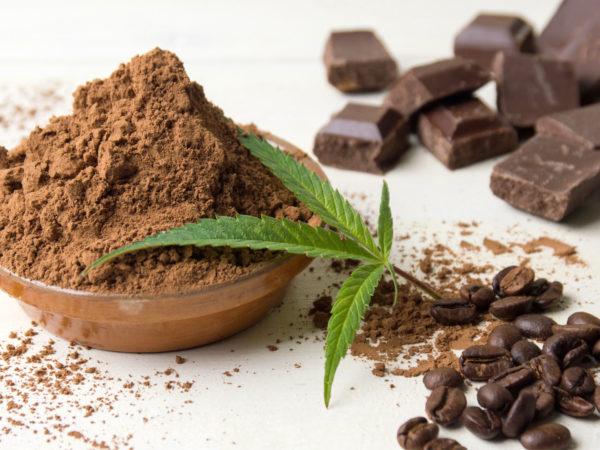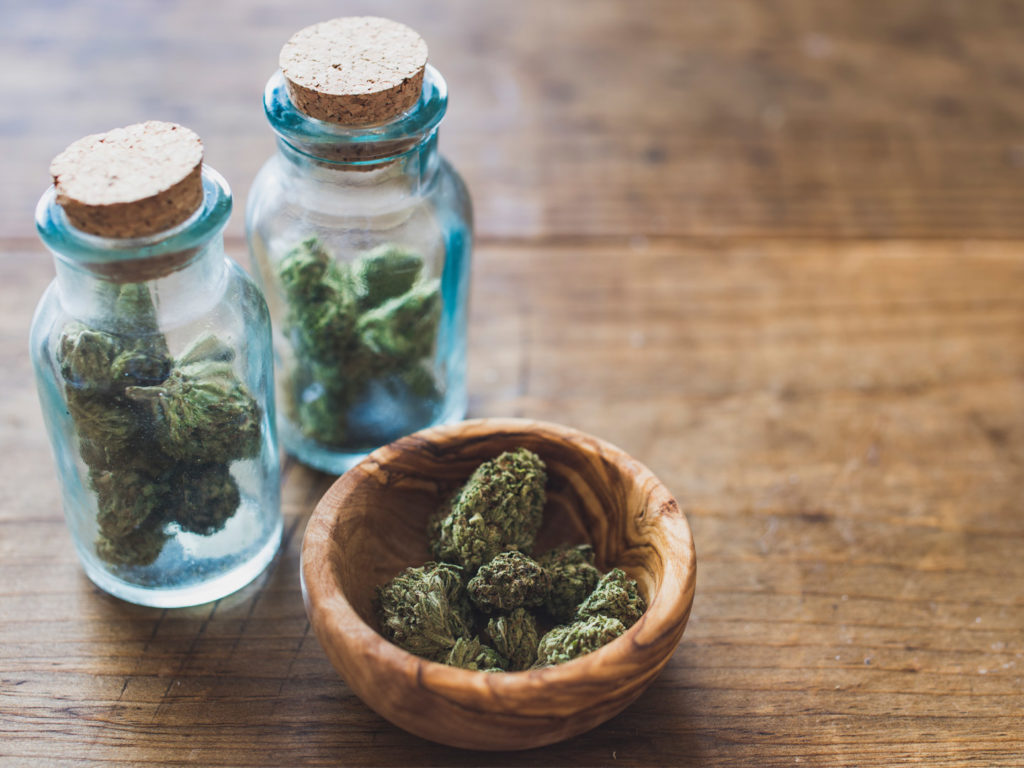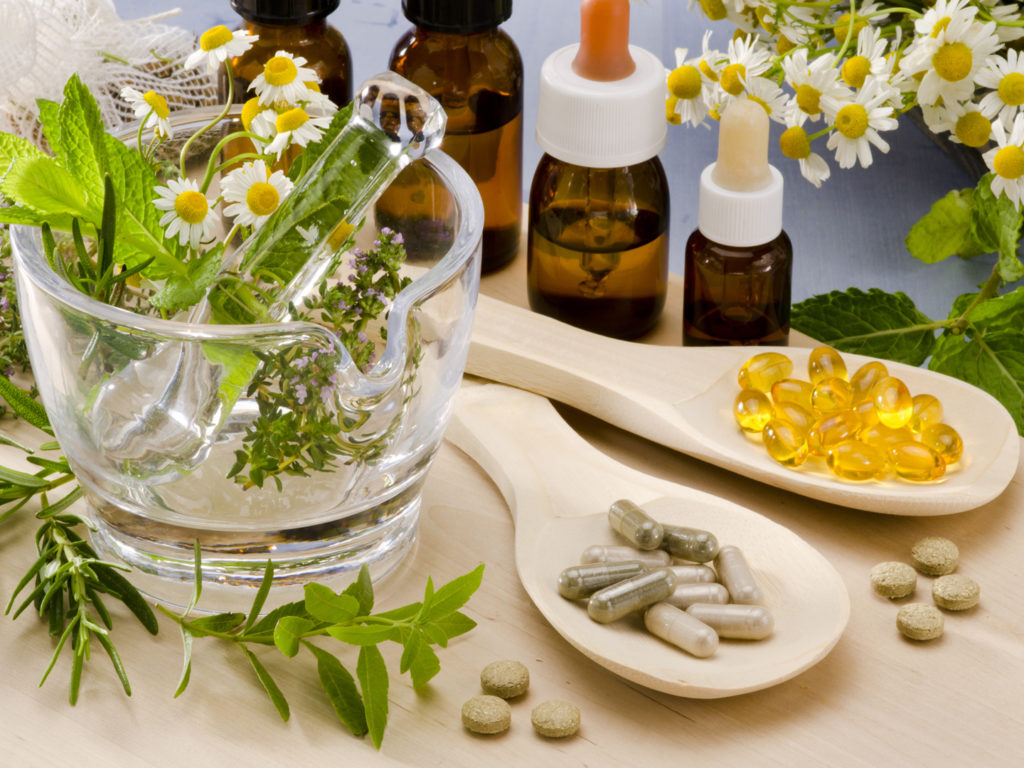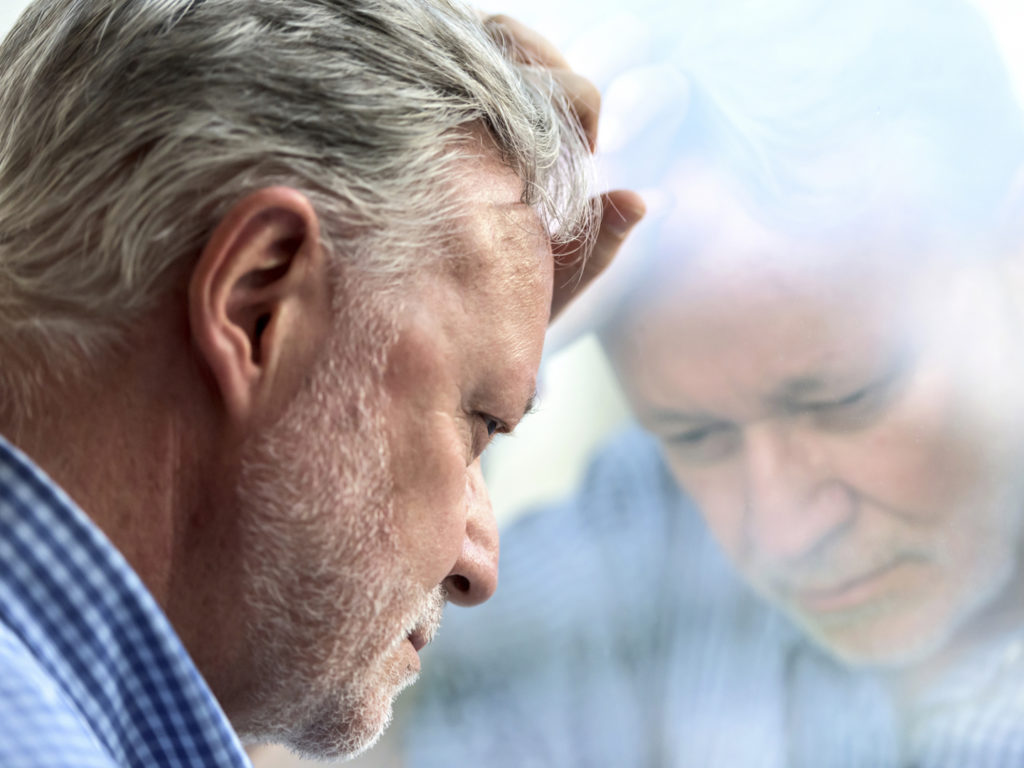Mood-Altering Drugs: Pros And Cons

There’s nothing more variable than how human beings respond to mood altering drugs. A substance that one person finds beneficial, or at least benign, can plunge another into a nightmare of suffering and pain.
So on the subject of mood-alteration and drugs, it’s extraordinarily difficult to make firm pronouncements about “good” and “bad” drugs. All one can do is make general observations, understanding that these describe tendencies, not absolutes.
The following are some of Dr. Weil’s observations regarding the use of mood altering drugs – legal and illegal, synthetic and natural – to alter mood states:
Mood Altering Drugs: Alcohol And Caffeine
The most widely used mood altering drugs in our society are alcohol and caffeine, the former a “downer,” the latter an “upper.” (That’s “depressant” and “stimulant” in medical language.) Both strongly affect mood and behavior and with regular use can lead to dependence and addiction. If you use either and want to attend to your emotional well-being, it is important to look at your relationships with these substances and learn how they might be impacting your moods.
It may seem odd that depressed persons would be drawn to a depressant drug, but that is the case. Alcohol first affects inhibitory centers of the brain, causing alertness; confidence; feelings of energy, warmth, and excitement; good mood; and dissipation of anxiety – a welcome, if temporary, respite from stress and sadness. The disinhibition it causes accounts for its perennial popularity as a “social lubricant” at cocktail and dinner parties and romantic encounters. It is worth deconstructing the term “happy hour” for an alcohol-centered get-together at the end of the day, especially with coworkers in a restaurant or bar that offers drinks at discounted prices during certain hours. Not only does it equate happiness with the effect of a mood-altering drug, it restricts the experience of it to a particular situation and implies that happiness is not to be had in all the hours of the day without alcohol.
In larger doses, alcohol dulls pain, both physical and emotional, although when it wears off, pain returns, now accompanied by physical and mental symptoms of alcohol’s toxicity. It is tempting to try to find relief by consuming more. People suffering from depression can easily slide into frequent and excessive drinking to avoid emotional pain, only to become addicted to alcohol and suffer all of the physical, emotional, social, and behavioral consequences of that addiction.
If you use alcohol regularly and are prone to depression or simply want to experience greater emotional resilience and well-being, I would ask you to examine your relationship with it. Ask yourself these questions:
- Do you use alcohol to mask anxiety, sadness, or other negative feelings?
- Do you look forward to the time of day when you drink as the time when you feel best?
- Do you depend on alcohol to help you through social situations or periods of increased stress?
- Are you able to experience contentment, comfort, and serenity when you are not using alcohol?
- Do you regularly use any other depressant drugs, such as anti-anxiety or sleeping medications? If so, be aware that their effects and risks are similar to those of alcohol and additive with them.
Alcohol can be a benign and useful social/recreational drug that may benefit overall health. Moderation and awareness are the keys to using it successfully and protecting yourself from harm and the risk of dependence.
Caffeine, especially in the form of coffee, is so much a part of our culture that most users are completely unaware of how powerful a drug it is and how much influence it has on both emotional and physical health. Sensitivity to caffeine varies greatly from person to person. Some people who drink one cup of coffee a day are physically addicted to it, will have a withdrawal reaction if they cut it out, and have any number of physical and emotional symptoms caused by it (that they likely do not connect with their coffee use). Others can drink many cups a day without any of that.
People like caffeine because it gives them temporary feelings of increased energy, alertness, and focus; many cannot start the day without it. Few understand that the energy provided by coffee, tea, cola, yerba maté, etc., is not some gift from out there. It is your own energy, stored chemically in your cells, that caffeine prods the body into releasing. When the drug wears off, you are left with a depletion of stored energy and are likely to feel fatigued and mentally dull. As with other stimulants, if you take more caffeine at this point, you can stave off the downside of the drug’s effect for a bit but run the risk of becoming dependent on it. When people are addicted to coffee or other forms of caffeine, their energy is usually bunched up early in the day and depleted later.
Caffeine makes many people anxious and jittery. Again, in sensitive people, this can occur with small doses. I advise anyone suffering from anxiety, nervousness, and mental restlessness to eliminate all forms of caffeine in order to determine how much it is contributing to those problems or obstructing efforts to control them. The drug also commonly affects sleep for the worse. I have seen cases of insomnia resolve when patients cut out one morning cup of coffee. Of course, these were very caffeine-sensitive individuals; none of them imagined that an ordinary cup of coffee at breakfast could interfere with falling or staying asleep at night.
Even more interesting to me are the case reports I have collected of people who experience improvement in mood when they have stopped using caffeine. Here, for example, is a letter I received from a friend, Bill Weaver, a filmmaker and facilitator from Victoria, British Columbia:
As far as I can remember, I’ve experienced some form of depression most of my adult life, although I only became really aware of it through the daily mirroring of a 20-year marriage. The defining part of my experience was this “ledge” I would all too easily slip over, sending me into an almost immobilized state.
I never bought into prescription antidepressants. Tales of their side effects kept me away. So, I started with alternatives like St. John’s wort, which worked reasonably well, but never completely tackled the problem. For the longest time, coffee – three large cups every morning – seemed to help. The caffeine appeared to keep me “up,” but what went up also went down: the price was a huge dip in my energy in the afternoon. After a few years passed, I was back to the usual tendencies.
Recently, I slipped into a deeper depression than I had experienced for a long time. In the midst of it, I just happened to see a post on Facebook about alternative “mood cures” and clicked on the link. The first thing I read was that coffee was more a contributor than cure. I immediately went cold turkey off of it. What followed were three or four mentally foggy days and some headaches. Ibuprofen nipped most of them in the bud. On another recommendation, I started taking daily doses of two supplements, 5-HTP and L-tyrosine, to balance my serotonin levels. Almost immediately, the “ledge” seemed to disappear.
Now, over a month later, while still in the midst of life’s trials and inconsistencies, I find myself down at times, but it feels more like a natural state and passes quickly. I have dropped the supplements and satisfy my caffeine yearnings with occasional high-quality black tea. I have more energy, healthier sleep, and a better interface with friends, associates, and daily challenges.
My friend’s experience is typical and revealing. Many people consider coffee to be a mild antidepressant, because it can boost mood when used occasionally or when used regularly by those who are less caffeine-sensitive and resistant to its addictive properties. In people dependent on their stimulant effects, coffee and other caffeinated beverages may well be more contributory to depression than counteractive. The only way to know how caffeine may be affecting your moods is to stop it completely. Note whether you have a withdrawal reaction: fatigue and throbbing headache are the most common symptoms, but digestive upsets and others may occur; these usually appear by 36 hours after the last dose of the drug, persist for two to three days, and are instantly relieved if you put caffeine into your system. If you have such a reaction, this is proof that you have been addicted to caffeine and an indication that it is likely to have affected your energy level, sleep, and moods. See how you feel without it.
Be aware that you may be getting more caffeine than you think, because it is in many products, not only the familiar beverages and chocolate, but also decaf coffee (!), energy formulas (drinks, energy waters, shots, powders, pills), non-cola sodas, herbal products, diet pills, and over-the-counter cold, headache, and pain remedies. To do the experiment properly you will need to eliminate all caffeine from your life.

Mood Altering Drugs: Recreational Drugs
Most drugs that people use to change their moods, perceptions, and thoughts are either depressants or stimulants. Barbiturates (Seconal, Nembutal, “reds”), quaaludes, and opiates all depress brain function, while cocaine, methamphetamine, and ephedrine stimulate it. Frequent or regular use of any depressant or stimulant drug can lead to dependence and addiction and undermine emotional health and stability. If you are in the habit of using substances of this sort and want to improve your emotional well-being, I advise you to learn about their effects, see how your moods change if you discontinue them, and seek professional help if you have difficulty separating yourself from them.
Cannabis is neither a depressant nor a stimulant but can also have significant cognitive and emotional effects. There is a great deal of individual variation in responses to cannabis. Some people find that it relaxes them, makes them more sociable and less angry, increases sensory pleasure and helps them concentrate. It works well for some as a natural remedy for pain, muscle spasm, and other medical problems. Others become anxious or paranoid when they use it. It helps some people sleep and keeps others from sleeping. It does not cause the kinds of dependence and addiction associated with stimulants and depressants, but heavy users may consume it every day throughout the day. Although the medical safety of cannabis is great, regular use can be a factor in suboptimal emotional well-being. If you use it more than occasionally and are going to follow the program in this book, I suggest abstaining from it for a while to find out whether it makes it easier or harder for you to maintain serenity, resilience, contentment, and comfort.
Mood Altering Drugs: Prescription And Over-The-Counter
Commonly prescribed drugs can affect mood, often for the worse. Too frequently, neither doctors who prescribe them nor patients who take them are aware of that potential. For example, antihistamines make many people depressed. (Recall that Thorazine and other “major tranquilizers” used to manage psychotic patients were developed from antihistamines.) I had a bad seasonal allergy to ragweed growing up for which I was given various drugs of this sort; it was a toss-up for me to suffer the dismal mood caused by them or the allergic sneezing and itching. They made me feel as if a gray curtain had descended over my brain. Although I’ve lost my allergies as a result of changing my diet and lifestyle and have not needed to take antihistamines in years, I have tried newer versions that are not supposed to get into the brain or cause sedation. I’m sorry to report that they still dampen my mood.
Other big offenders are sleeping and anti-anxiety medications, particularly the benzodiazepines (Valium, Halcion, Klonepin, Xanax, Ativan, etc.). These drugs are addictive, interfere with memory, and commonly cause mental clouding and depression. Some experts call them “alcohol in a pill.” Opiates, such as codeine, Demerol, and Oxycontin, are often prescribed as cough suppressants and treatment for chronic pain are strong depressants. I mentioned the risks of hormones and corticosteroid drugs like prednisone at the beginning of this chapter. With long-term use steroids cause emotional instability, mania, and, most often, depression. Bronchodilators – used to manage asthma and chronic obstructive pulmonary disease – are strong stimulants that make many people anxious, jittery, and sleepless. Some medications used to control high blood pressure also have negative effects on mood. In fact, so many different kinds of pharmaceutical drugs can influence your emotional life that you should pay attention to any changes you notice when starting on a prescribed medication. I also suggest that you search the Internet for full information on possible psychological effects of any medications you take regularly (Good sites are WebMD.com, drugs.com/sfx, and drugwatch.com.)
The same goes for OTC (over-the-counter) products, especially sleeping aids; cough, cold, and allergy remedies; diet pills; and analgesics (pain relievers).

Mood Altering Drugs: Herbal Remedies
Herbs that affect mood include depressants, like kava and valerian, and stimulants like ephedra, guaraná, yerba maté, and bitter orange. Occasional use is not a concern, but if you take any of these regularly, pay attention to their effects on your emotions. Other natural products sold online, in health food stores, groceries, and pharmacies may contain psychoactive substances: read labels carefully.
In summary:
Many commonly used beverages; prescribed, OTC, and recreational drugs; as well as herbal and natural remedies affect mood. Frequent or regular use of them can make it harder to attain optimum emotional well-being.















